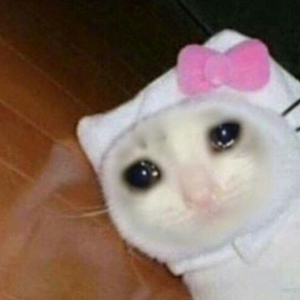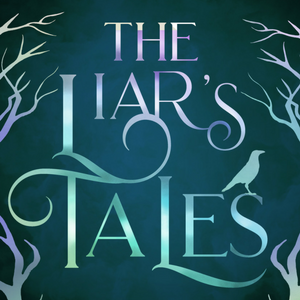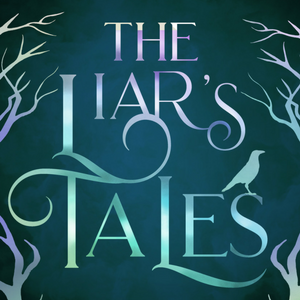Part 2 - 3
Squirrels barked overhead from the tree, each so high up it strained Mr. and Mrs. Hamfrill’s necks to see where they perched. Ravens swooped from branches, cawing to make their presence known to anything nearby. But it was finding berries in early spring that tasted of strawberry and mint, sweet and fresh, that eased their worries along the way.
They kept north with the Hang Toe Mountain’s snowcapped peaks on their left, and salt-laden breeze of the Lonely Sea to their right for two days. They were nearly half-way to Porttown as the afternoon edged closer by the third day. Nothing slowed them down too much, even the berries gathered plucked from just off the pathway. And they would have reached the other side by night, telling their journey around a campfire, with the first meal they couldn’t finish in months for dinner.
But they heard a cry in the Neverwoods.
It squealed out mid-day and wasn’t a gleeful sound. Not of a baby, though it was high pitched and feeble. But the noise twisted up their throats and made both flinch like they’d just stepped on a bee. From what they’d heard all their lives, the wisest choice was to ignore strange sounds and go back to somewhere familiar, like a home with a straw thatched roof and pot of cabbage soup for lunch. A place where the strangest thing was how hardly anything ever happened.
Neither one knew how unlucky they truly were their whole lives, and perhaps that’s why they hadn’t run away the moment that cry wailed out. Logical things didn’t cross their mind, like whatever ensnared the distressed animal surely could snap their bones in a second.
But another cry called out, and a whimper that all creatures. Almost like a bleat, and from leaving any throat no matter how furry, scaled, or slick it means to surrender. That unless someone is there to rescue the creature, it's been defeated and knows it. When their last crop failed, both Mr. and Mrs. Hamfrill made that kind of sound staring down at rows of blackened plants, each rotted stem, after not having a meal for three days straight. Mr. and Mrs. Hamfrill gave a single look to one another upon the third cry and did exactly what all the villagers told their little children never to do.
They fled up a hill with grass switching at their heels, and into a brush where vines thickened as big as their arms. One patch was cleared away, swooped with roots and mounds of dirt covered in little piles of ash. To anyone stumbling onto the place, you’d question why remnants of campfires were scattered around nonsensically, and why the trees were gnawed with teeth marks wide as sliced bread. But the couple saw none of that because they’d found what cried out first.
Russet-hued and the size of a sack of potatoes, lay a boar. Like the piglets in the village, it was plump around the middle and stared up at them with black eyes deep as any well. But not all was so familiar. Two tusks, more knobby than sharp, poked out of its mouth. But rather than sparse haired, this boar was covered in wiry fur from snout to hoof. One of which was bit by the teeth of a trap.
Had it been any other creature, Mr. and Mrs. Hamfrill would have freed the animal to roam. But to touch a boar was to be forbidden: you would be marked with bad luck, maybe a mysterious curse, or even a possession by the creature itself and turn into an outcast. But a thought even worse than banishment got Mr. Hamfrill’s arms shaking like a rattle.
“What if they think it’s our trap?” Mr. Hamfrill said, touched the pliers at his chest, and eyed the trap’s crude hinge.
“We don’t hunt at all,” Mrs. Hamfrill said, almost in a confession to the boar. “But how would they know that?”
Even in the far reaches of the land and in homes too busy for stories, everyone knew to never cross a boar. Hurt a single hair on one of their hides, and the razing of your entire village wouldn’t be far off, wiping it away like mud from beneath a shoe.
Slicing through the air, a pitched howl called out with the dawning of stars overhead. A dozen yips plucked the air back, brandishing an instinct of Mr. and Mrs. Hamfrill to seek the nearest branch and scurry up it. All the good ones were too far overhead and out of reach. Mr. and Mrs. Hamfrill nudged closer to the boar, who made another bleat and curled into a shape, not unlike a round loaf of bread.
Mr. Hamfrill ducked down, to prod at trap hinge. “But we can’t leave it here like this. The wolves are maybe… say a mile away?”
“If they catch the smell of blood they’ll be around sooner than you’d expect. I can mend that leg, and track where she came from,” Mrs. Hamfrill said, one hand already fishing in her satchel for her tonics and ointments.
“A nest. With a herd of boars,” Mr. Hamfrill said, and his tongue went dry as sand. “What luck we’ve got, right?”
Poor luck or not, Mr. Hamfrill gripped the pliers and broke apart the hint. He scooped the little boar into his arms, which weighted twice what he expected. Mrs. Hamfrill cleaned and slathered the wound, wrapped its leg in a bandage, and tucked their blanket around it. Mrs. Hamfrill, who in the village tracked the hungry hares and deer past their own warrens and glens to find where they foraged for garlic grass, walnuts, and wild plums, found what they needed to lead them: hoofprints, faint and scattered, grew in size and depth down the hillside, into the brush that thickened, and over a creek neither knew existed.
Munching the last of their berries, the boar fell into a slumber twitchy and deep as any baby along the journey. Any doubts of following the right tracks emptied like a bucket knocked over the moment they crossed over an old bridge. A wide clearing of boulders two stories high dotted a meadow, out of place as a mole on a smooth face.
One boulder moved, shifting around to reveal it wasn’t stone at all but alive. Striped down the back, a great boar turned to face them, towering overhead with tusks long as Mr. Hamfrill’s legs. Eyes narrowed, the great boar inhaled, and exhaled so much air it fluttered Mrs. Hamfrill’s dress hem and ruffled Mr. Hamfrill’s beard.











Comments (0)
See all